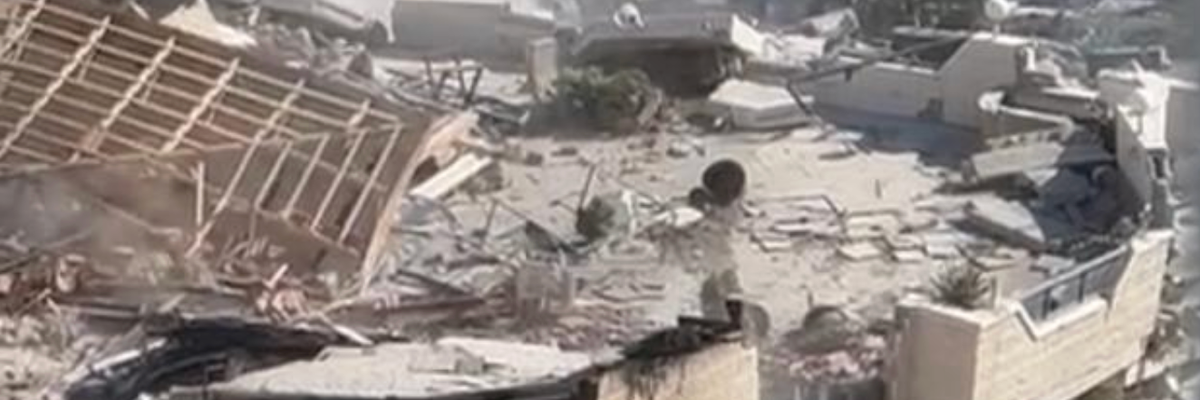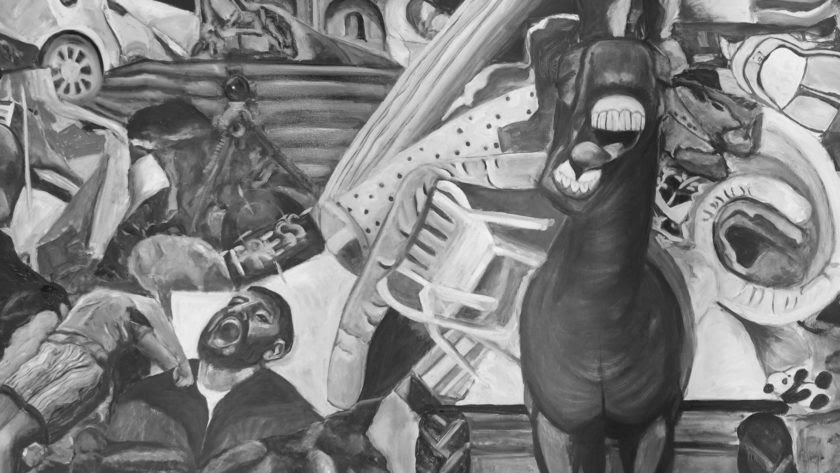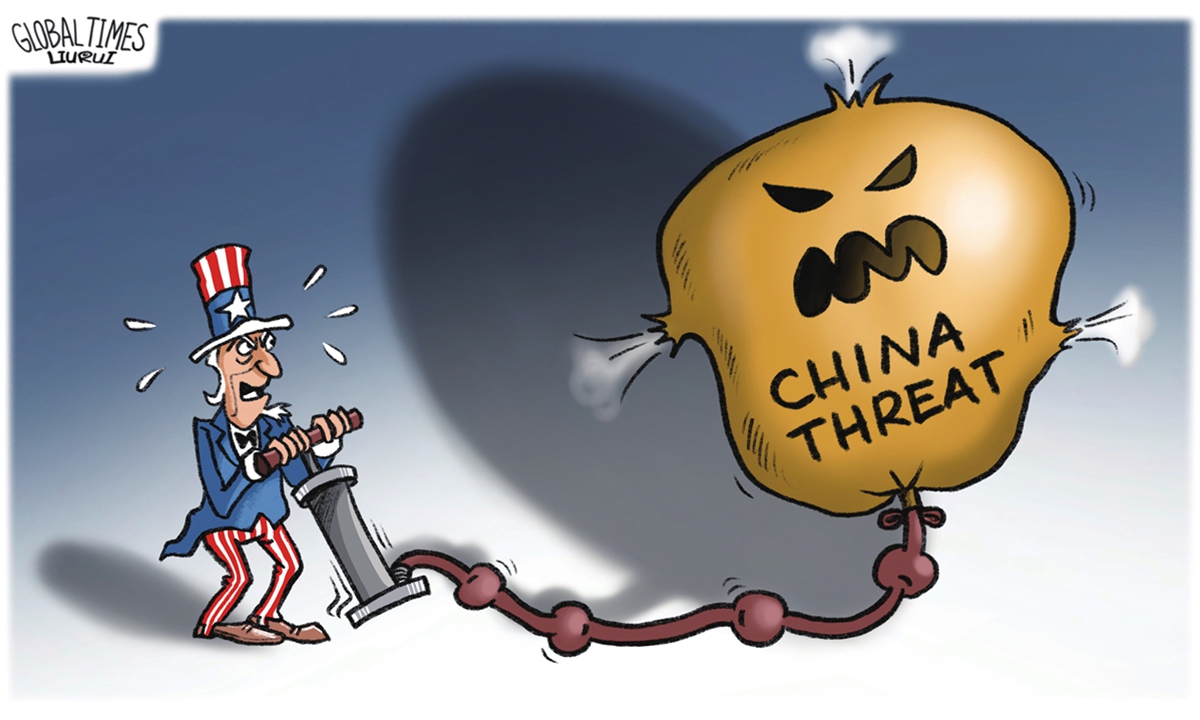5 countries to resume funding for UNRWA: Palestinian PM
Palestinian Prime Minister Mohammad Shtayyeh says he received confirmation from representatives of five countries that suspended funding to UNRWA that they intend to resume their donations within several weeks, Al Jazeera reports.
The announcement comes after the prime minister received several Western ambassadors and consuls at his office on Thursday, the Palestinian news agency Wafa reports.
Canada confirmed during the meeting it will resume funding. It was not immediately clear which other countries renewed their commitment to the UN agency for Palestinian refugees.
Amnesty International: “States That Have Suspended Funding to UNRWA Should Reverse Their Decision”
By Amnesty International

At least 11 states have decided to suspend funding to the United Nations Relief and Works Agency for Palestinian Refugees in the Near East (UNRWA), following allegations that some staff were involved in the attacks perpetrated by Hamas on October 7 in southern Israel. This decision deals a severe blow to the over two million refugees in the occupied Gaza Strip, for whom UNRWA represents the only lifeline.
Amnesty International urges these states to reverse their decision and refrain from suspending funding to the Agency.
“It is deeply disconcerting – indeed, inhumane – that several governments have made decisions that will cause further suffering to more than two million Palestinians, already at risk of genocide and of a planned famine, just days after the International Court of Justice concluded that the survival of Palestinians in Gaza is at risk. Shockingly, these actions have been taken following allegations involving 12 of UNRWA’s total workforce of 30,000,” said Agnès Callamard, Secretary General of Amnesty International.
“The allegations regarding the involvement of UNRWA employees in the October 7 attacks are serious and must be subject to an independent investigation; anyone who is implicated in a sufficiently proven way must be subjected to fair trials. However, the alleged actions of certain individuals must not be used as a pretext to interrupt vital care in what could amount to a form of collective punishment,” Callamard continued.
The United Kingdom, Germany, Italy, the Netherlands, Switzerland, Japan, France and Finland have joined the United States, Australia and Canada in pausing funding for the agency. These countries together provided more than half of UNRWA’s total budget in 2022. The agency immediately fired nine employees following the allegations and launched an investigation.
At a time when Israel, as an occupying power, continues to openly violate its obligations towards Palestinian refugees in Gaza and the rest of the occupied Palestinian territories, Amnesty International recalls that UNRWA has long played a crucial role, representing the only life support, through the provision of essential humanitarian aid, education and shelter. The Agency also provides much-needed aid to millions of other Palestinian refugees living in neighboring Arab countries.
Norway, Spain, Ireland, and Belgium are among the states that have announced that they will not suspend funding, recognizing the vital role that UNRWA continues to play in distributing humanitarian aid to those who desperately need it.
“It is shameful that some key states, including the United States, Canada, the United Kingdom, Germany, Australia, and France, instead of paying attention to the decision of the International Court of Justice and the finding that the catastrophic humanitarian situation in the Gaza Strip is seriously at risk of further deterioration, have stopped financing the main provider of aid to civilians in Gaza,” said Agnès Callamard.
“All States have a clear duty to ensure the implementation of decisions of the International Court of Justice, including those ordering Israel to take immediate and effective measures to ensure the provision of humanitarian assistance to Palestinian civilians in Gaza, considered a crucial step to prevent genocide and further irreparable damage.”
“Some of the same governments that announced a halt to funding for UNRWA have meanwhile continued to supply weapons to the Israeli military, despite overwhelming evidence that they are being used to commit war crimes and serious human rights abuses. The rush to freeze funding for humanitarian assistance, based on allegations still under investigation while refusing to even consider suspending support for Israeli military forces, represents a clear example of double standards,” added Agnès Callamard.
“Instead of suspending vital funding for those in need, the States involved should work to stop arms transfers to Israel and Palestinian armed groups and press for an immediate and lasting ceasefire and full access to humanitarian aid, to alleviate the devastating suffering underway,” concluded Callamard.
Israel and right-wing groups have for years conducted a smear campaign against UNRWA, which plays a key role in defending Palestinians’ right to return to their lands.
Israel Bombed Belgian Aid Office in Gaza After Nation Refused to Halt UNRWA Funding
"This is a direct result of the impunity Washington has provided Israel," said one analyst.
A photo shared by Belgium's foreign affairs minister shows the destroyed office building that housed the Belgian Agency for Development Cooperation in the Gaza Strip on February 1, 2024.
(Photo: Hadja Lahbib/X.com)
JAKE JOHNSON
COMMON DREAMS
Feb 02, 2024
Belgian officials expressed outrage Thursday after Israeli forces reportedly bombed the office building of the Belgian Agency for Development Cooperation in the Gaza Strip, an attack that came after Belgium declined to join the U.S. and more than a dozen other countries in cutting off funding to the United Nations' Palestinian refugee agency.
"The offices of Enabel, the Belgian development agency in Gaza, were bombed and destroyed," Hadja Lahbib, Belgium's foreign affairs minister, wrote on social media. "Targeting civilian buildings is unacceptable."
Lahbib and Caroline Gennez, Belgium's minister of development cooperation and urban policy, posted photos of the destroyed building and demanded a meeting with Israel's ambassador envoy to the country to discuss the attack, which took place on Wednesday.
Jean Van Wetter, the CEO of Enabel, said Thursday that "we are all shocked."
"As a government agency working for the common good in a framework of international humanitarian law," he added, "we cannot accept this."
None of the agency's staffers were believed to be present when Israeli forces struck the building, as Belgium withdrew Enabel employees and their families from the territory two weeks ago.
A satellite data analysis released earlier this week shows that more than half of Gaza's buildings have been damaged or destroyed by Israel's U.S.-backed bombardment of the Palestinian enclave—one of the most devastating bombing campaigns in modern history.
The timing of the attack on the Belgian office building raised eyebrows, with observers pointing to the nation's status as one of the handful of Western countries not suspending aid to the U.N. Relief and Works Agency for Palestine Refugees in the Near East (UNRWA) in response to Israel's allegation that a dozen of the agency's employees took part in the October 7 attacks.
"Belgium is one of the Western countries that has refused to cut funding to UNRWA. So Israel just bombed the office of the Belgian Agency for Development Cooperation in Gaza," Trita Parsi, executive vice president of the Quincy Institute for Responsible Statecraft, wrote on social media. "This is a direct result of the impunity Washington has provided Israel."
Sixteen countries have halted their financial support to UNRWA, compromising the aid agency's ability to deliver humanitarian assistance to Gazans increasingly at risk of starvation and disease. Philippe Lazzarini, the UNRWA's commissioner-general, said Thursday that the agency "will most likely be forced to shut down" its operations in Gaza and across the region by the end of this month if funding isn't restored.
The U.S. State Department announced its decision to suspend funding for UNRWA last Friday, just hours after the International Court of Justice ruled that South Africa's genocide case against Israel was plausible and ordered the Israeli government to ensure the flow of humanitarian assistance to Gaza.
Questioned about the timing of the U.S. decision to suspend UNRWA funding, State Department spokesman Matthew Miller said during a press briefing Thursday that "there was no concern" internally that the announcement would be seen as a rebuke of the ICJ's interim ruling.
Norwegian Foreign Minister Espen Barth Eide, whose country is among those that have declined to suspend aid to UNRWA, said Thursday that he is "reasonably optimistic" that at least some of the countries that have cut off funding will reverse course in the near future.
Eide said earlier this week that he has been "discussing the question of funding with other donors" and urged "fellow donor countries to reflect on the wider consequences of cutting their funding to UNRWA"
"UNWRA is a vital lifeline for 1.5 million refugees in Gaza," he added. "Now more than ever, the agency needs international support."
In Global Appeal, UNRWA Says Gazans Likely Won't Survive If Agency Abandoned
"If the funding remains suspended, we will most likely be forced to shut down our operations by end of February not only in Gaza but also across the region," warned the agency chief.

Palestinian men and children gather for a demonstration in Rafah in the Gaza Strip on January 30, 2024, calling for continued international support to the United Nations Relief and Works Agency for Palestine Refugees in the Near East.
(Photo: AFP via Getty Images)
JESSICA CORBETT
Feb 01, 2024
A United Nations humanitarian agency warned Thursday that over a dozen countries that have suspended their financial contributions are risking the "sheer survival" of most people in the Gaza Strip amid Israel's war on the besieged Palestinian enclave.
The United Nations Relief and Works Agency for Palestinian Refugees in the Near East (UNRWA) said in a statement that "the colossal humanitarian needs of over 2 million people in Gaza now face the risk of deepening" due to recent donor suspensions over Israeli allegations that a handful of agency staff members participated in the Hamas-led attacks on October 7.
The number of countries cutting off funding—including the United States—has grown over the past week even though the 30,000-employee agency swiftly fired nine workers and launched an investigation into the the Israeli government's claims.
"The agency remains the largest aid organization in one of the most severe and complex humanitarian crises in the world."
While cease-fire talks are ongoing, Israel's nearly four-month assault on Gaza—condemned as genocide in a South African-led case at the International Court of Justice—continues, with the death toll topping 27,000 on Thursday and thousands more injured or missing in the bombed and burned homes, hospitals, schools, mosques, shelters, and refugee camps.
In response to Israeli orders early in the U.S.-backed war, many Palestinians have fled northern Gaza. Thomas White, director of UNRWA affairs in Gaza and U.N. deputy humanitarian coordinator for the occupied Palestinian territory, explained Thursday that the agency has had limited access to the people who remain in the north.
"UNRWA received reports that people in the area are grinding bird feed to make flour. We continue to coordinate with the Israeli army to be able to go to the north, but this has been largely denied," he said. "When our convoys are finally permitted to go to the area, people rush to the trucks to get food and often eat it on the spot."
Meanwhile, in southern Gaza, "Rafah has become a sea of people fleeing bombardments," White added.
According to the UNRWA's tally, donor nations have suspended at least $440 million in funding. Philippe Lazzarini, the agency's commissioner-general, declared Thursday that "as the war in Gaza is being pursued unabated, and at the time the International Court of Justice calls for more humanitarian assistance, it is the time to reinforce and not to weaken UNRWA."
"The agency remains the largest aid organization in one of the most severe and complex humanitarian crises in the world," he said. "I echo the call of the U.N. Secretary-General António Guterres to resume funding to UNRWA. If the funding remains suspended, we will most likely be forced to shut down our operations by end of February not only in Gaza but also across the region."
White warned that "it's difficult to imagine that Gazans will survive this crisis without UNRWA."
The comments from UNRWA leaders echoed remarks from other U.N. officials, humanitarians, global advocacy groups, and even some progressive U.S. politicians over the past week.
"UNRWA's lifesaving services to over three-quarters of Gaza's residents should not be jeopardized by the alleged actions of a few individuals," Martin Griffiths, United Nations under-secretary-general for humanitarian affairs and emergency relief coordinator, told the U.N. Security Council on Wednesday.
"To put very simply and bluntly: Our humanitarian response for the occupied Palestinian territory is completely dependent on UNRWA being adequately funded and operational," he added. "Decisions to withhold funds from UNRWA must be revoked."
Griffiths and 14 other U.N. leaders and humanitarian partners who argued in a Tuesday statement that while the allegations against UNRWA staff "are horrifying" and "any U.N. employee involved in acts of terror will be held accountable," global donors must not prevent the agency from helping the "hundreds of thousands of people homeless and on the brink of famine."
"Withdrawing funds from UNRWA is perilous and would result in the collapse of the humanitarian system in Gaza, with far-reaching humanitarian and human rights consequences in the occupied Palestinian territory and across the region," the coalition said. "The world cannot abandon the people of Gaza."










